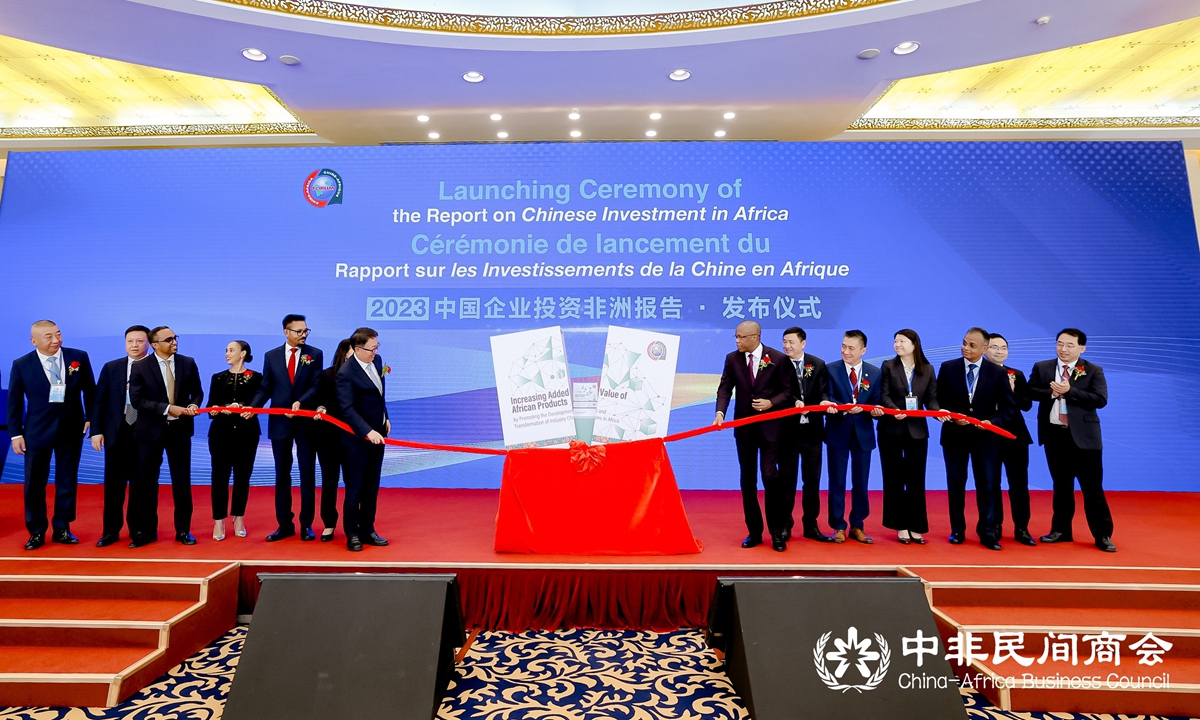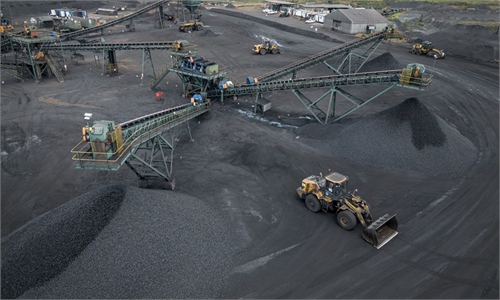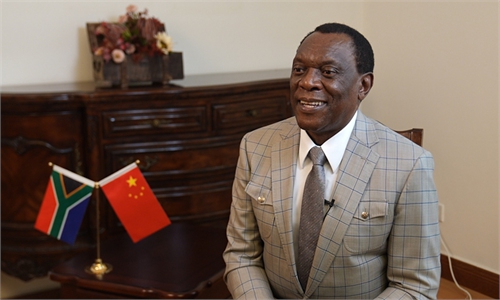Chinese enterprises help increase added value of African products, promote local industry chain transformation

The launching ceremony of the Report on Chinese Investment in Africa is held in Beijing by the China-Africa Business Council on October 24, 2023. Photo: Courtesy of the China-Africa Business Council
Chinese enterprises have played a vital role in increasing the added value of African products as well as promoting the development and transformation of industry chains in Africa, read a report on Chinese investment in Africa released by the China-Africa Business Council on Monday.
Due to the insufficient supply of advanced production elements and high market transaction costs, the development and transformation of Africa's industry chains has been difficult. As Africa's most steadfast and reliable partner, China has always committed to aligning its Belt and Road Initiative (BRI) with the development strategies of African countries, and the cooperation on industry chains has always been the focus of China-Africa cooperation.
According to the report, under the guidance of the BRI and the China-Africa Cooperation Forum, China-Africa industry chain cooperation contributes to the development and transformation of the African industry chain through modes including industrial parks and investment, infrastructure and industrial foundations, as well as technology transfers and talent cultivation.
At the same time, Chinese enterprises have made outstanding contributions to the development and transformation of the African industry chain in many fields, such as agriculture, manufacturing, the digital economy, medicine, logistics and infrastructure, read the report.
Bill Ao, president of Zhejiang Holley Global Industry Development Co in Hangzhou, East China's Zhejiang Province, told the Global Times on Tuesday that the company is actively promoting the establishment of an industrial park in Morocco, which will help the Chinese manufacturing industry to explore the European and African markets more efficiently and conveniently.
"China-Africa industry chain cooperation is a certainty among the many uncertainties of the future of economic globalization," Ao said.
Most African countries have a weak industrial base and supporting capacity, and Chinese enterprises' investment in Africa is in line with the actual needs of African countries to promote the industrialization process, which will help improve the status of African manufacturing in the global industry supply chain, Ao noted.
Ao's company mirrors the contribution of a large number of Chinese firms to Africa's industry chain transformation in fields from traditional sectors like infrastructure construction to new-energy industries like solar power and green development.
For instance, the Kaleta Hydropower Station in Guinea, which was financed and constructed by China, has a total of capacity of 245,000 kilowatts, greatly alleviating the power shortage in Conakry, capital of Guinea.
"The prospects for Chinese [economic] growth are certainly quite high and trade and investments between China and Africa is growing at a very high rate," Patrick Ocailap, deputy secretary to the Treasury at Ministry of Finance, Planning and Economic Development of Uganda, told the Global Times on Tuesday.
Chinese investment, or foreign direct investment in Africa, will add value to those agricultural products. Value-added output from Africa means a multiplier effect in the economy of Africa, and it will show up in returns on Chinese investment in Africa, Ocailap noted.
"We welcome Chinese enterprises to invest in fields related to renewable energy including solar power, which is an exciting opportunity for both sides to develop the green economy," Ocailap said.


